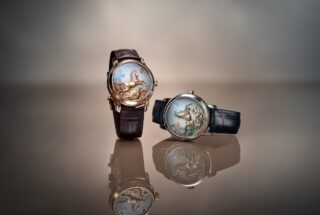This website uses cookies so that we can provide you with the best user experience possible. Cookie information is stored in your browser and performs functions such as recognising you when you return to our website and helping our team to understand which sections of the website you find most interesting and useful.
Interview: Heston Blumenthal talks 25 years of groundbreaking gastronomy
By Lauren Jade Hill | 5 May 2020 | Food & Drink
The Fat Duck restaurateur looks back on his most impactful moments and what’s next for his scientific culinary approach
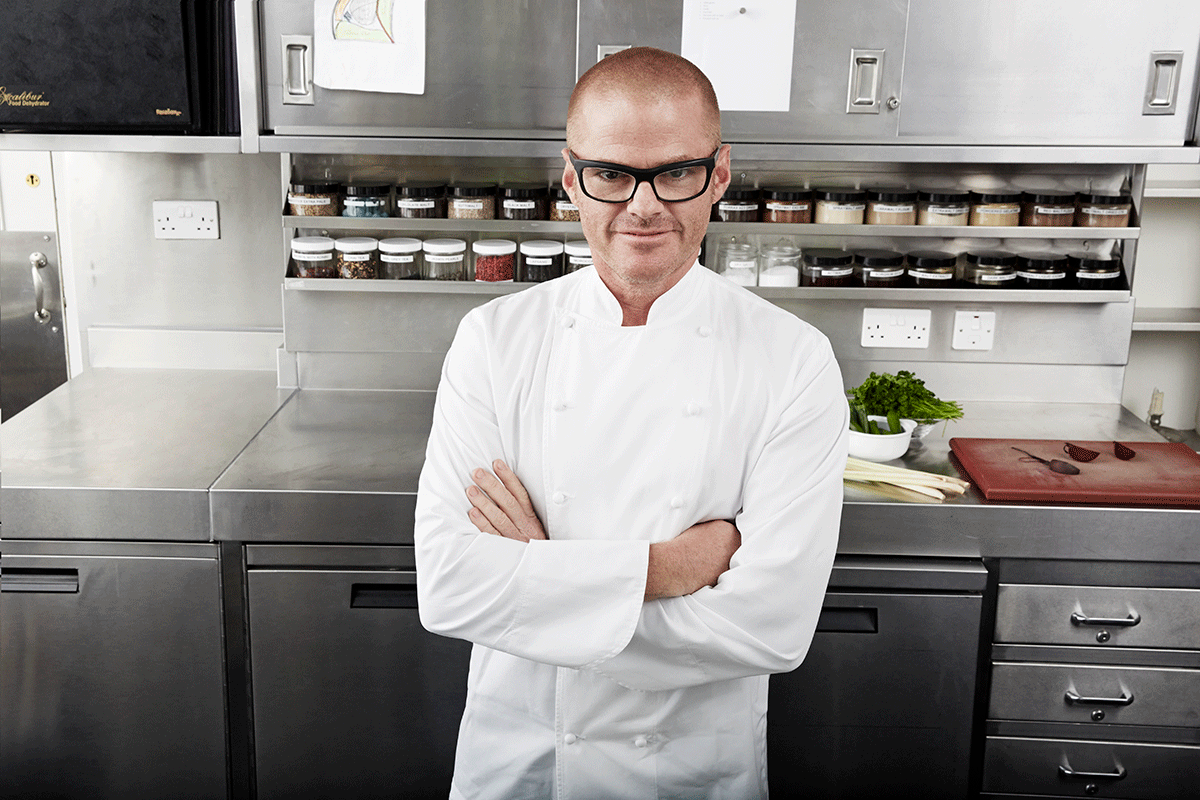
Download your complimentary copy of Tempus Magazine issue 67 now
Snail porridge, meat fruit and savoury ice cream… bold dishes like these have defined the extraordinary impact The Fat Duck has had on the world of gastronomy over the past 25 years. Since that time, the restaurant has been awarded three Michelin-stars and accolades including Best Restaurant in the World.
The restaurant’s founder, Heston Blumenthal, is unlike most chefs. His journey is led by a relentless curiosity, tireless scientific research and the desire to dismantle everything so he can put it back together again. Never before Blumenthal’s launch had a restaurant utilised the culinary potential of elements such as liquid nitrogen, or explored the limits of multi-sensory dining to such a degree.
“When I started The Fat Duck, I went down a route that hadn’t really been looked at before,” says the chef of his gastronomic style, which did nothing less than rock the industry. “I began to question [the norm] and realise that if I started changing the wording on the menu, the noise, smell or temperature of the food, it changed our perception of what we ate.
“Our ability to imagine things that don’t exist is uniquely human. If I say there’s a candyfloss cloud attached to the top of the building with a liquorice string blowing in the wind, for instance, we can imagine it. That imagination allows us to create shared beliefs, from storytelling to money, science and even cooking. Without imagination, we could not make objects like tables and telephones, and without making those objects, we’d have nothing to bounce the imagination off. So those two sides, which I call human being and human doing, both need to exist.”
This is the concept at the root of Blumenthal’s 25-year journey as a pioneer of gastronomic feats including multi-sensory cooking, molecular foodpairing and flavour encapsulation. “When I realised it’s our emotions and feelings that make everything what it is, that’s when I realised that what I was trying to do with The Fat Duck was generate emotions of curiosity, inquisitiveness, playfulness and adventure.” >>
Related: Tempus tests this gourmet delivery brand to find out if we can truly achieve fine dining at home
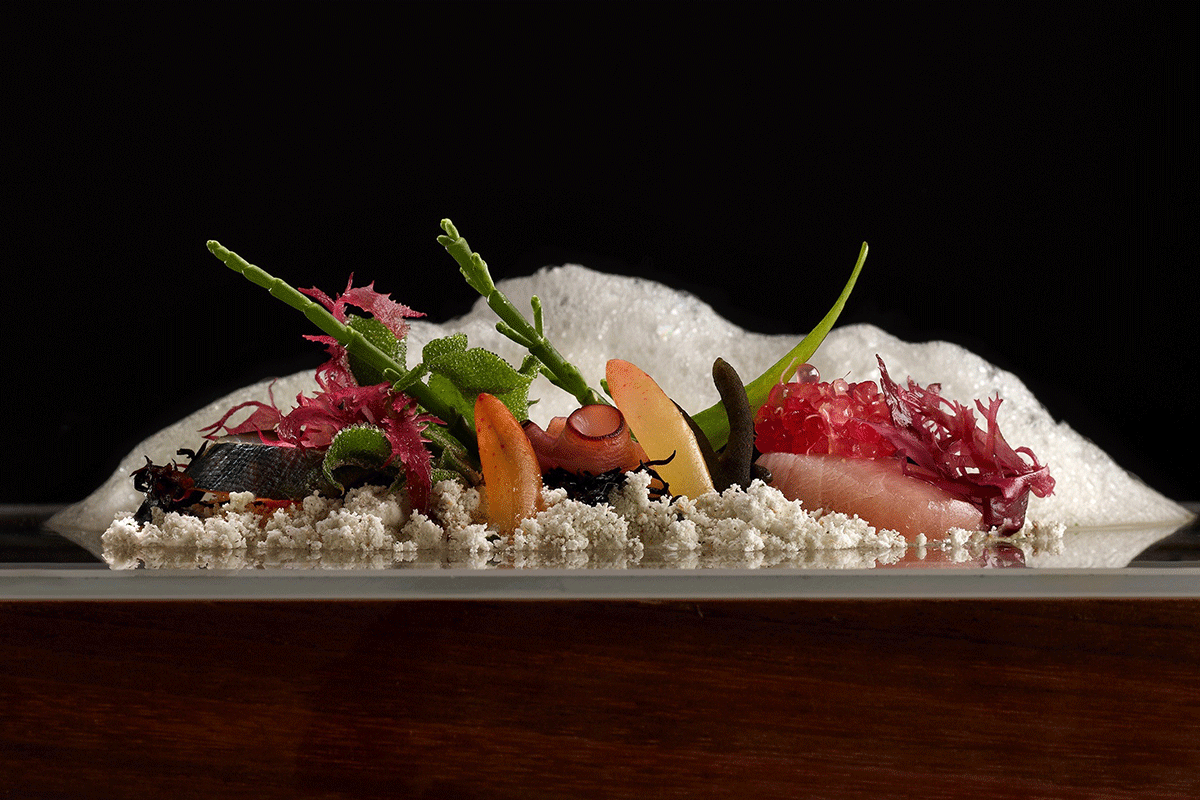
From the beginning, this approach was crystallised by never-before-seen dishes, developed through scientific research and culinary experimentation. The chef’s savoury ice cream was among his most famous creations. “I first made crab ice cream in the late 1990s,” he says. “On reflection, this was one of my landmark dishes. It changed the way I thought about food because I realised people’s perception changed based on whether I called it a frozen crab bisque or crab ice cream.” This realisation became the basis of Blumenthal’s first research paper in 1997, co-written with Martin Yeomans for the University of Sussex.
“In an experiment, people who were told a dish was smoked salmon ice cream thought it was 10-15% saltier than the people who were told it was a frozen smoked salmon mousse, because from memory people expect ice cream to be sweet. This is when I started to use the term multi-sensory,” he says. “I didn’t realise but at that time the neuroscience world was doing research on how one sense can influence another. I came along and said you can’t separate the senses and that they’re all there creating this multi-sensory effect. It was only at the Cheltenham Science Festival a couple of years ago that someone told me that information had changed the world of neuroscience. I had no idea.”
This drive for innovation is complemented by a fascination with food history. Inspired by cookbooks written as far back as the 14th century, Blumenthal takes cues from dishes’ historic roots. Homage paid to creative cooks of that time include a nod to culinary entrepreneur Agnes Marshall, whose 1888 cookbook gave the first mention of using liquid nitrogen to make ice cream, despite not being able to source this component herself. Drawing on this idea, Blumenthal became the first chef to develop the liquid nitrogen ice cream-making method, which is now made tableside at The Fat Duck on an ice cream trolley loosely based on Marshall’s original drawing.
Dishes born from findings like these have gradually evolved into an increasingly multi-sensory experience, with the completion of The Fat Duck’s £2.5m renovation in 2016 marking the arrival of the restaurant’s Journey Menu. Taking inspiration from Blumenthal’s childhood holiday memories, this dining experience leads you on a nostalgic journey through seven chapters ranging from, ‘Are we nearly there yet?’ to the final chapter, ‘And then to dream’. >>
Related: Why rare whiskies and ghost distilleries are worth their weight in gold
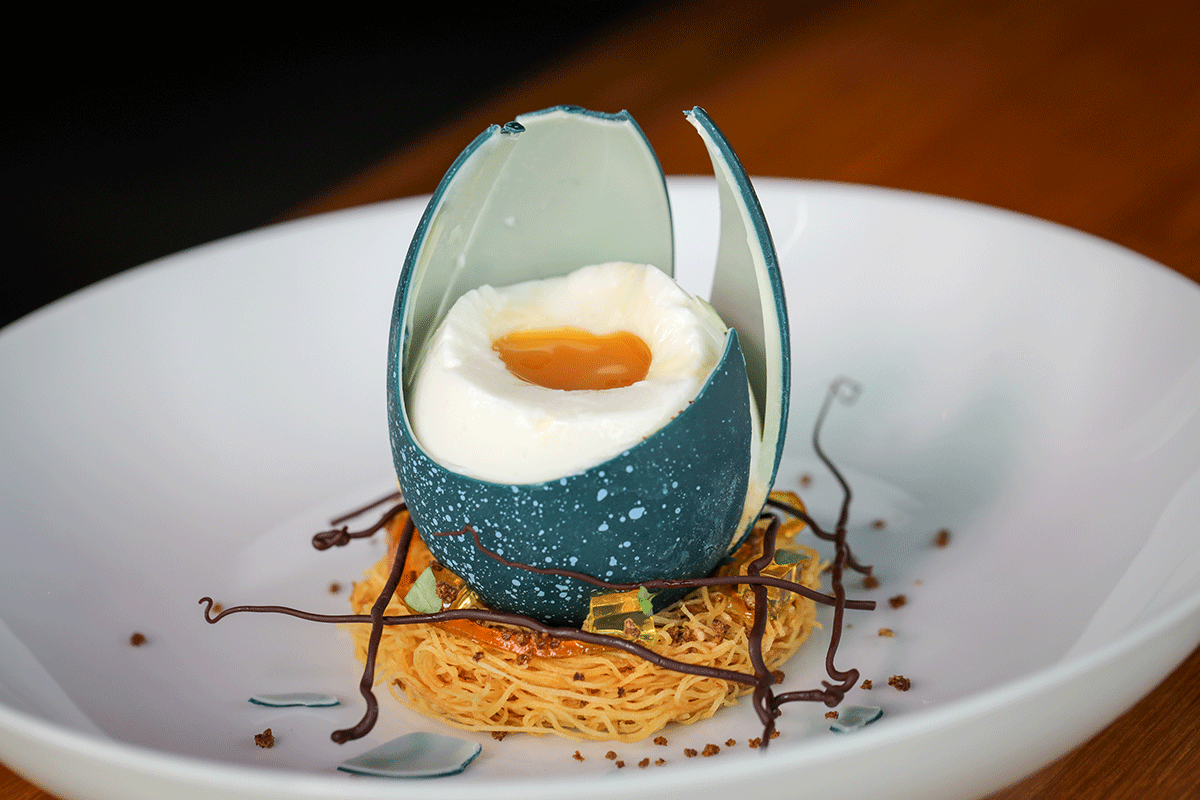
Dining at the restaurant in Bray, Berkshire, earlier this year, I discover that each chapter incorporates playful yet gastronomically accomplished dishes, combining exceptional ingredients such as Cornish crab and black truffle with scientifically developed techniques and the added depth and orchestration of sound, aroma and lighting.
My table’s waiter, Martin, introduces himself as our storyteller for the day, guiding us through the experience laid out by the menu’s illustrated map, in which a trip to the seaside is followed by a venture into the woods. My favourite dish is a rockpool creation. Consisting of a crab shell modelled from white chocolate with smoked caviar (one of the chef’s classic flavour pairings), a mussel velouté and seashell-shaped clam jelly, it perfectly evokes the Cornish coast.
For Blumenthal, The Fat Duck’s momentous 2020 milestone is not just an opportunity to take stock, but to set new objectives for the future. He plans to focus increasingly on education and public engagement, having already established several programs based around helping students rethink how they approach food. He also recently set up a new laboratory in the south of France for a surprisingly elementary purpose – to test the application of modifying the state of water.
“Water is the single most important ingredient in the kitchen,” he explains. “After 25 years I’m saying, ‘Let’s go back to the beginning. I’m playing around with water, changing the pH [acidity] and activating it by vibrations and sound, then doing basic recipes to see how that affects it. We’re essentially taking everything we’ve learned from the past 25 years and then starting again with this, which is really exciting.” >>
Related: Discover London's most prestigious art restaurants and gallery bars
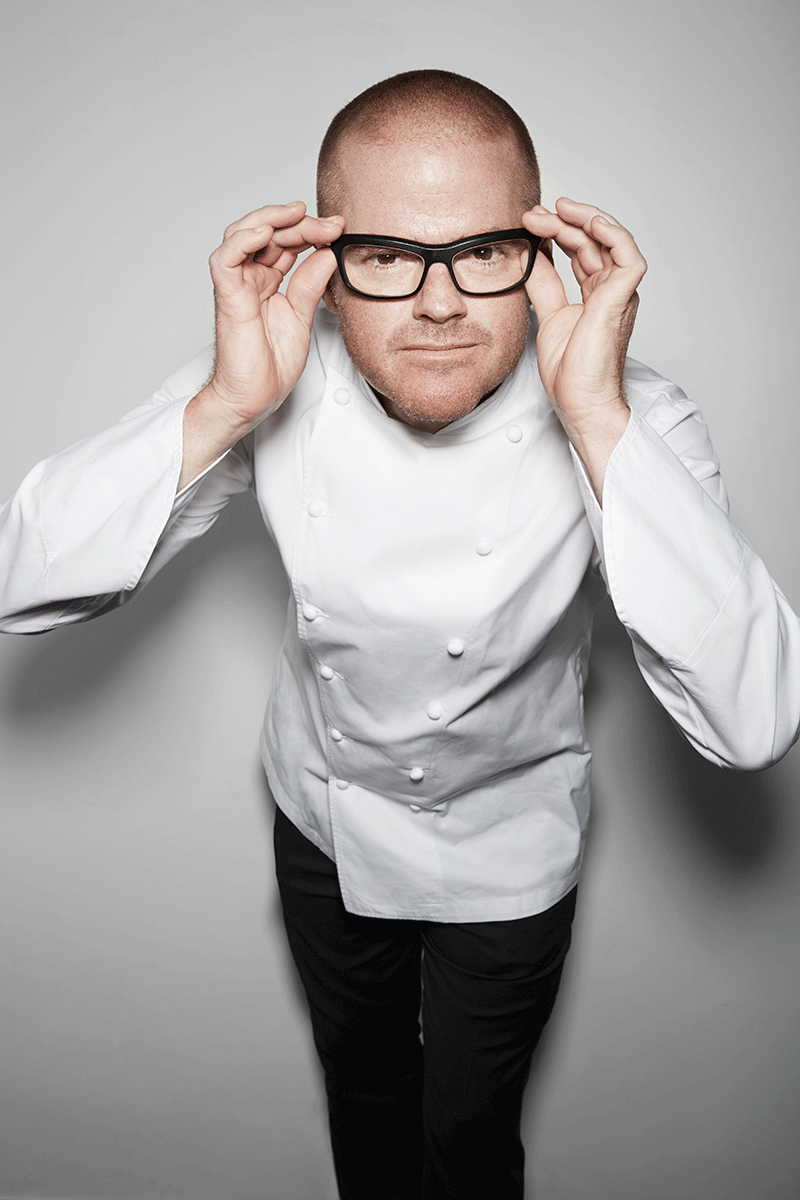
To celebrate the restaurant’s history, Blumenthal and his team plan to showcase key dishes from the The Fat Duck’s illustrious past on celebratory menus at the chef’s other establishments The Hind’s Head, also in Bray, and Dinner by Heston Blumenthal in London, once the hospitality industry resumes operations later this year. The TV series Crazy Delicious, in which Blumenthal plays a key role, hits Netflix in June and he’ll be releasing a new sensory-driven recipe book towards the end of 2021.
Adding even more intrigue to the coming months, the chef is contributing an exhibit to the Victoria and Albert Museum’s upcoming Alice in Wonderland exhibition and, going forward, the star chef plans to draw on his studies into hunter-gatherer behaviour – which we may or may not see reflected in the inaugural menus of his new venture, Dinner by Heston Blumenthal at The Royal Atlantis Resort & Residences, Dubai, projected to open at the end of the year.
With so much planned, it’s evident that Blumenthal – an Honorary Fellow of the Royal Society of Chemistry and OBE holder – continues to thrive on invention and growth. “I said to someone a while ago that I exhaust myself,” he laughs, “and then I realised, that’s the problem – I don’t.”




